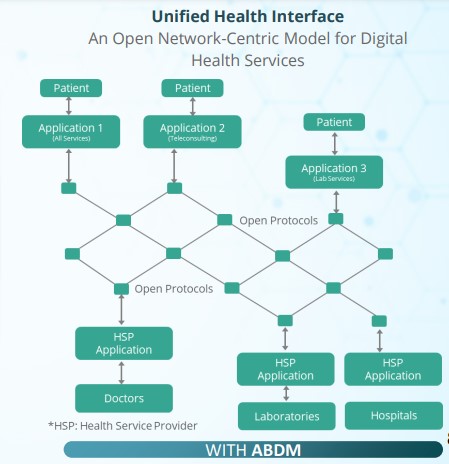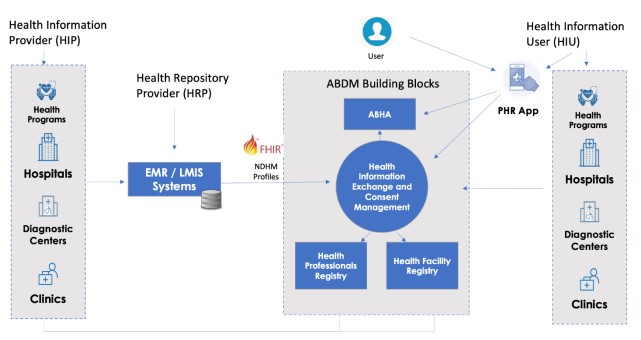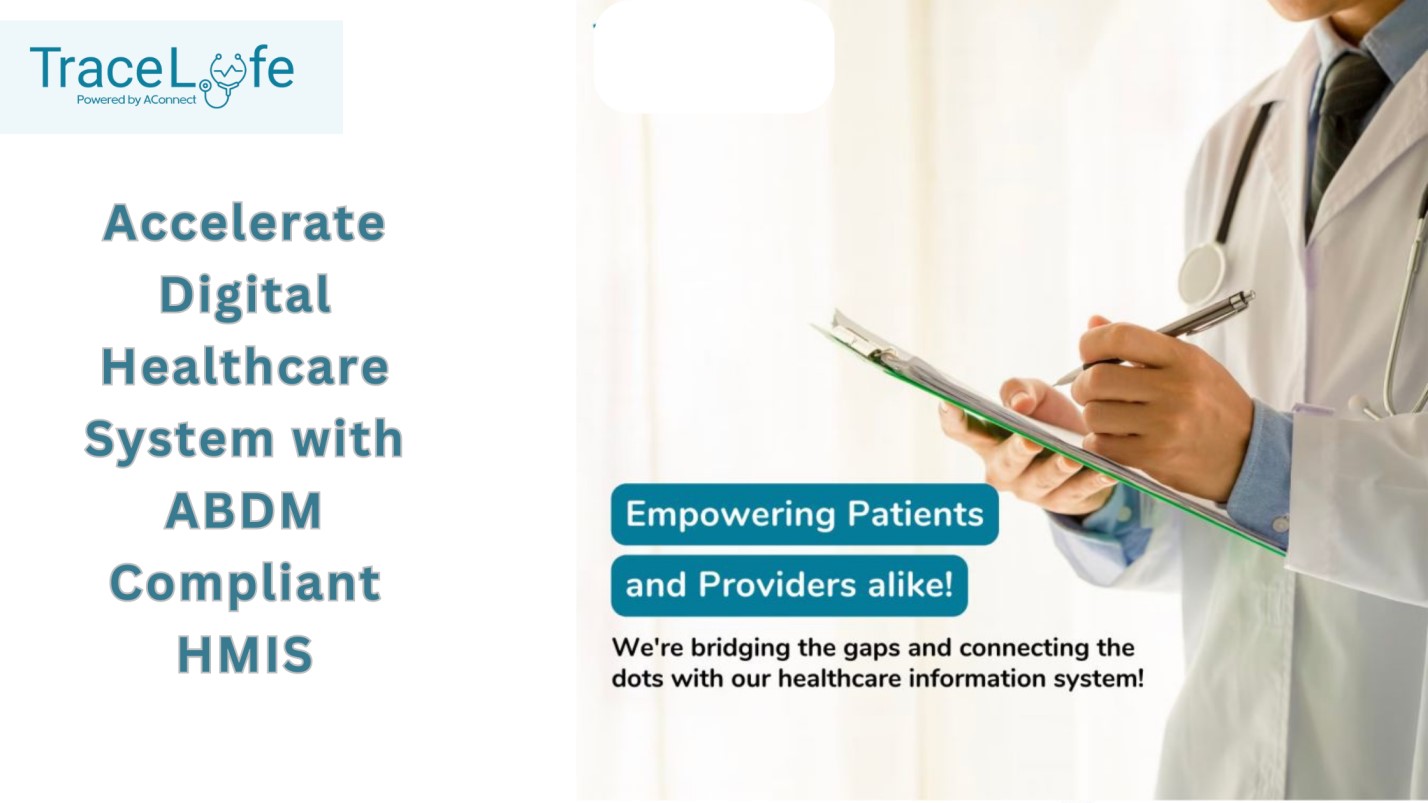Driven by the Covid-19 pandemic, India has adopted digital health at a breathtaking pace. The unprecedented health crisis paved the way for the requirement of a digital healthcare system and thus proved to be a dawn of patient-centric care. India’s successful adoption of the ABDM compliance suite has accelerated the progress towards universal health coverage.
Universal health is directly associated with our digital health. When we talk about digital health, we are talking about strengthening primary healthcare systems, improving universal health coverage, and timely and relevant data for decision-making and resource allocation. That’s why; the Indian government brought the mission, Ayushman Bharat, to achieve universal health goals.

Let us understand what ABDM is and the complete ABDM compliance suite in this article.
What is ABDM? The Ayushman Bharat Digital Mission (ABDM), formerly known as the National Digital Health Mission (NDHM), works on bringing interoperability for digital health data in India. Any healthcare provider creating health data (diagnostic reports, discharge summaries, prescriptions, etc.) over a digital platform should participate in ABDM. Getting ABDM integration will enable them to share these records with their patients. Also, they can fetch the stored data issued by other providers with patients’ consent. For this, all they need to be ABDM Compliant health providers.

Whatever software you are using to become ABDM Compliant, NHA requires the software to be certified for compliance. The best way is to call out the empanelled agencies to compliant the software for ABDM conditions.
What is ABDM Compliance Suite? ABDM defines as a set of ‘digital building blocks. In other words, it has several components that decide its functional landscape.

Let’s know them:
Ayushman Bharat Health Account (ABHA): It is essential to regulate the identification process of an individual across healthcare providers. Every patient who wants to keep their health records digitally can create an ABHA number. The ABHA registration can be done via self-registration or at any participating healthcare provider.
Healthcare Professionals Registry (HPR): NHA maintains the national directory of all Healthcare professionals and enables them to participate in the digital health ecosystem. All doctors and other health professionals; who are a part of ABDM healthcare providers need to enrol with HPR on the official website or through their ABDM Integrated software. The HPR will be an integrated data set from data maintained by various medical councils, nursing councils and paramedical boards.
Health Facility Registry (HFR): NHA maintains the national directory of all healthcare facilities. Any participating facility should sign up in the health facility registry at the official website or through ABDM software. HFR consists of information for each healthcare facility in the country – hospitals, clinics, diagnostic centres, and pharmacies across all systems of medicine covering both public and private health facilities.
Health Information Exchange and Consent Manager (HIE-CM): The HIE-CM enables the exchange of personal health data with consent according to Health Data Management Policy issued by NHA. Users who want to link their health records at various health facilities and share their data with approval; must sign up with the HIE-CM and obtain an ABHA address.
Health Information Provider (HIP): Any healthcare provider who creates, stores, or distributes health information in the context of providing healthcare-related service to a patient and agrees to share the same digitally with the patient using the consent framework adopted by ABDM is a Health Information Provider (HIP).
Health Information User (HIU): Any permitted entity that intends to access the health history of any user with their informed consent is called a Health Information User.
Health Repository Provider (HRP): Health Repository Providers are software services that offer ABDM-compliant software and long-term record storage to hospitals, diagnostic centres and clinics.
Personal Health Record Apps (PHR Apps): PHR Apps are software service providers which offer front ends to Individuals and enable them to create an ABHA address, discover & link health records from various HIPs, allow users to view their health updates, offer long-term storage of data, upload users health records and share records on the ABDM network. If you want to know how to be ABDM registered, you can take the help of ABDM partners like Racloop mentioned on NHA official websites.

